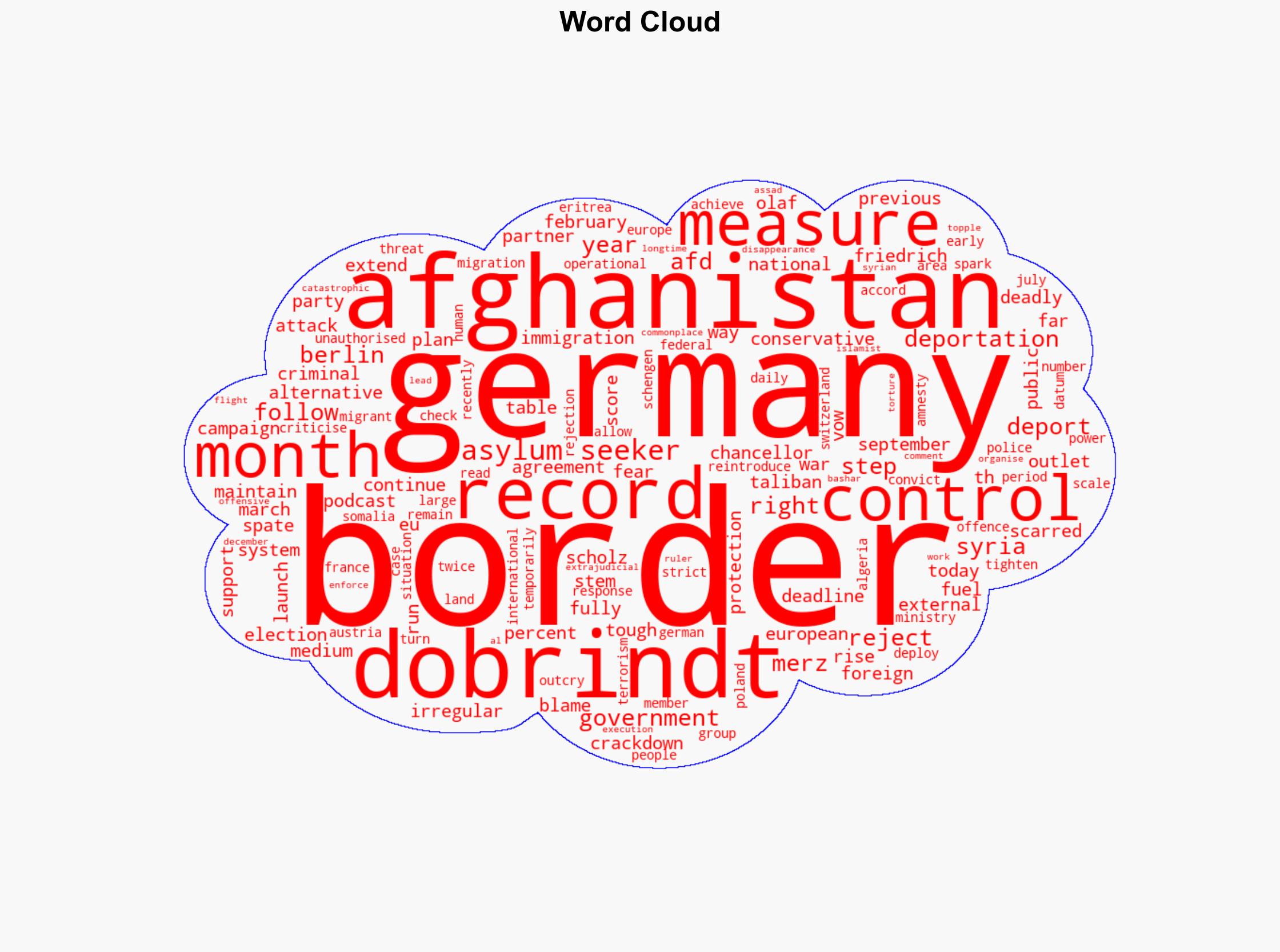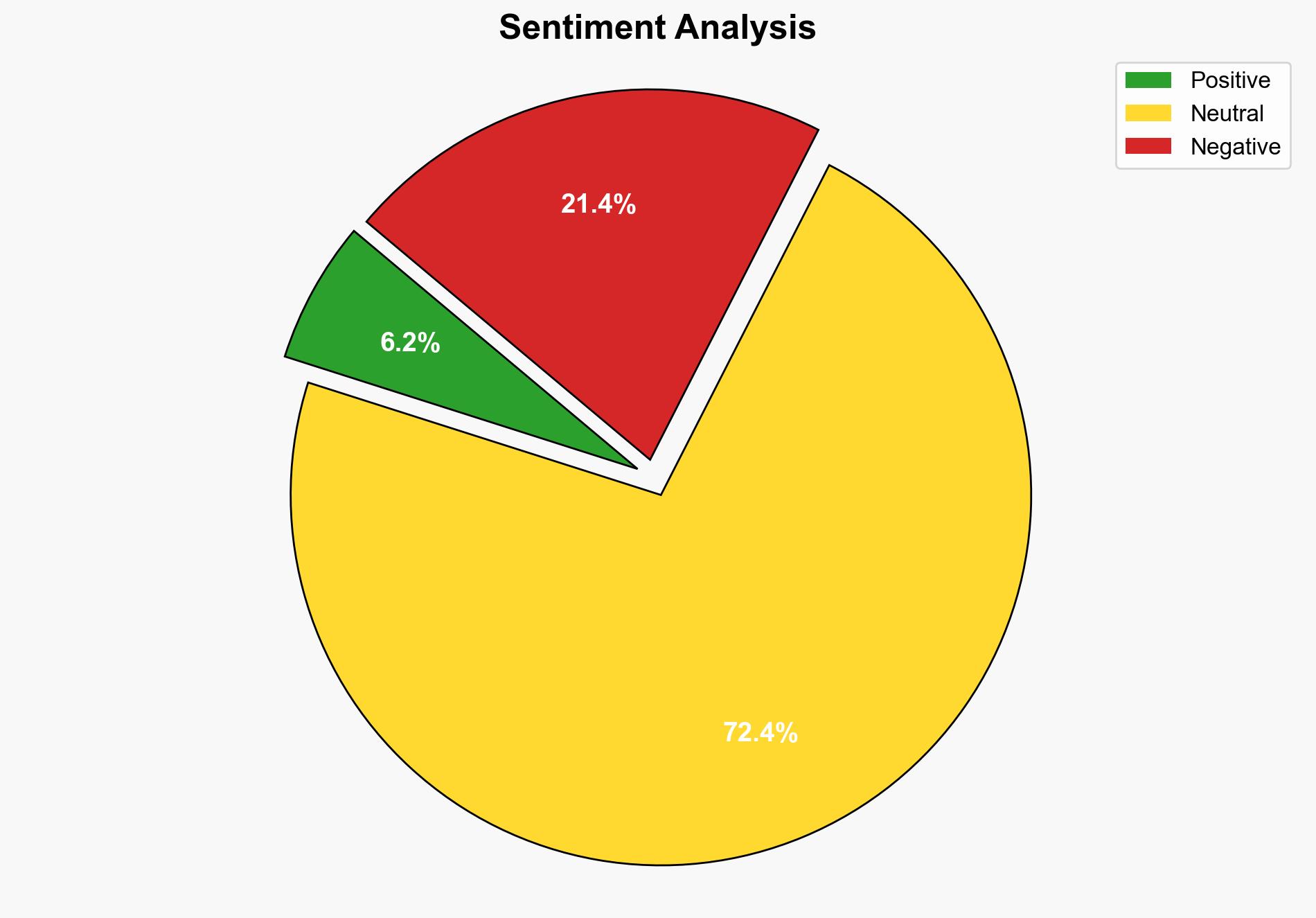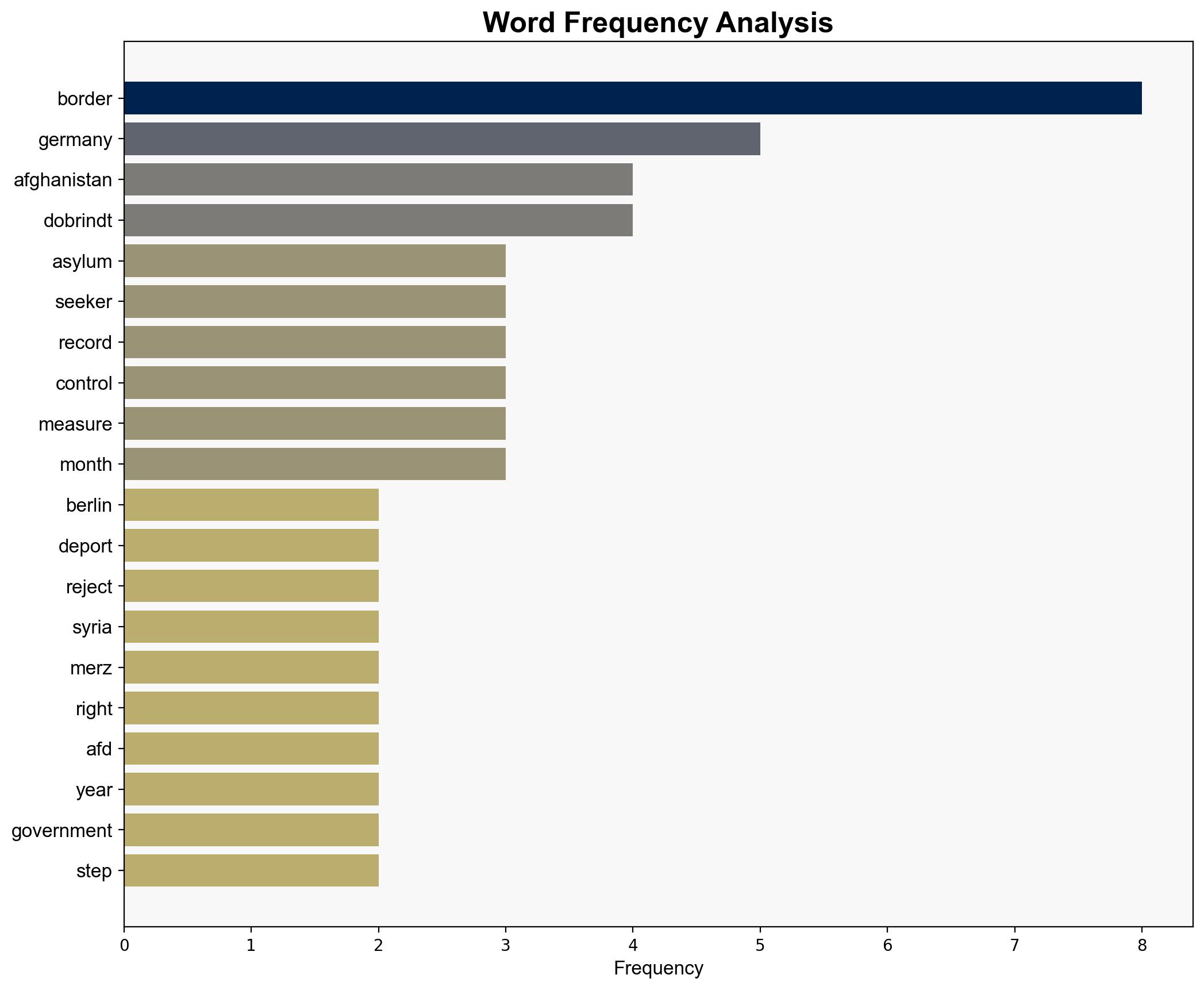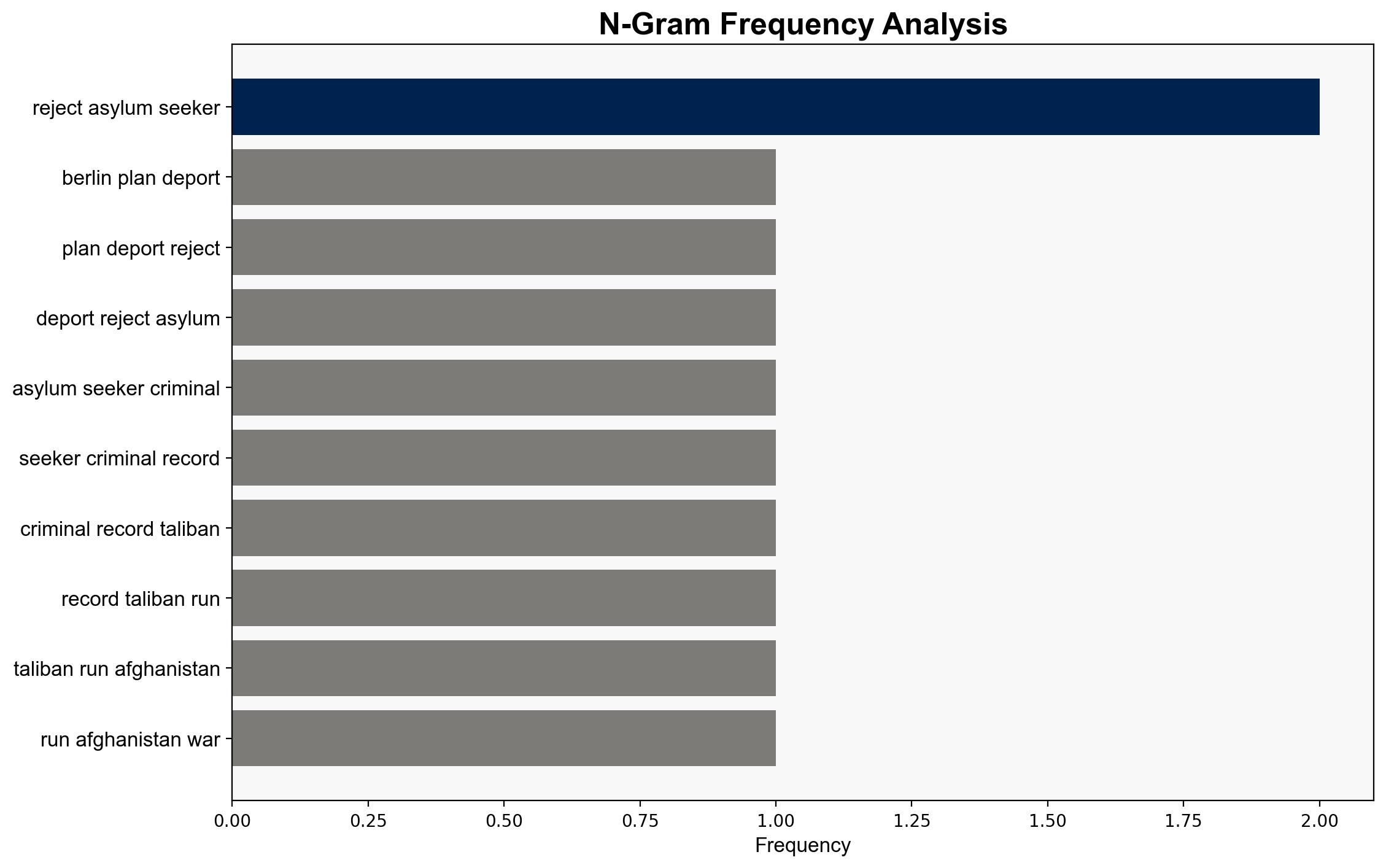Germany to further extend border controls in migration crackdown – The Local Germany
Published on: 2025-08-07
Intelligence Report: Germany to further extend border controls in migration crackdown – The Local Germany
1. BLUF (Bottom Line Up Front)
Germany’s decision to extend border controls is primarily driven by domestic political pressures and security concerns. The most supported hypothesis is that the extension is a strategic move to curb the rise of far-right political influence and address public safety concerns. Confidence level: Moderate. Recommended action: Monitor political developments and public sentiment to anticipate further policy shifts.
2. Competing Hypotheses
Hypothesis 1: The extension of border controls is a response to genuine security threats and an effort to manage irregular migration effectively. This hypothesis suggests that Germany is prioritizing national security and public safety by preventing unauthorized entry and deporting individuals with criminal records.
Hypothesis 2: The extension is primarily a political maneuver aimed at appeasing domestic political factions and voters concerned about immigration, particularly in light of the rise of the Alternative for Germany (AfD) party. This hypothesis posits that the government is leveraging border control measures to counteract the AfD’s influence and gain political capital.
Using the Analysis of Competing Hypotheses (ACH) 2.0, Hypothesis 2 is better supported due to the timing of the policy extension with upcoming elections and the explicit mention of political motivations in the source text.
3. Key Assumptions and Red Flags
Assumptions:
– The security situation in Afghanistan and Syria remains unstable, justifying deportations.
– Public fear and political pressure significantly influence policy decisions.
Red Flags:
– Potential bias in attributing policy solely to political motivations without sufficient evidence of security assessments.
– Lack of detailed data on the effectiveness of previous border control measures.
4. Implications and Strategic Risks
The extension of border controls could lead to increased tensions within the EU, particularly with countries advocating for open borders. There is a risk of escalating political polarization domestically, which could fuel further support for far-right movements. Economically, stricter border controls may impact trade and labor mobility within the Schengen Area.
5. Recommendations and Outlook
- Engage in diplomatic dialogues with EU partners to address concerns and ensure cohesive regional policies.
- Monitor public sentiment and political developments to anticipate shifts in policy or public unrest.
- Scenario Projections:
- Best: Successful management of migration leads to reduced political tensions and stabilization of public sentiment.
- Worst: Heightened political polarization and strained EU relations result in economic and social disruptions.
- Most Likely: Continued political maneuvering with incremental policy adjustments to balance security and political pressures.
6. Key Individuals and Entities
Friedrich Merz, Alexander Dobrindt, Alternative for Germany (AfD) party.
7. Thematic Tags
national security threats, political strategy, EU relations, migration policy




